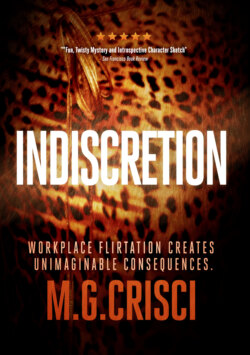Читать книгу Indiscretion - M.G. Crisci - Страница 21
На сайте Литреса книга снята с продажи.
19.
ОглавлениеContract negotiations drag on, and on, and on.
Next day, I walked into Craft’s office. “Dawson, I’d like to talk to you about the agreement.”
“No problem, pal, just close the door.”
I unemotionally cut to the chase. “Dawson, I think the vesting period is too long; it ignores past contributions.”
Craft’s take was different. “No, pal, you’ve got it all wrong. Giving you ten percent of a company valued at $200 million in recognition of your past contributions. But to make the company grow, so we’re both worth a lot more, I gotta make sure you’re by my side for three to five years.”
I knew that was Dawson’s way of saying, let’s compromise the vesting to three years, which was probably his goal in the first place. He was quite unprepared for my counterproposal. “Dawson,” I said, balancing indignation and determination, “I’m going to make it simple. The stock has to be fully vested because this is my last corporate rodeo.”
“Jeremy and Eddie will flip. That’s not reasonable.”
I decided to gamble the house and throw him a life raft. I knew from Craft’s dealings with our field advisors that he abhorred confrontation. He preferred that others do the dirty work. He fancied himself The Great Compromiser, a modern-day Henry Clay. “Dawson, if that doesn’t work for you, I understand. We can just part friends. It’s been a great three years.”
“You’d leave me over this?” he said, totally befuddled.
I ignored his question. “If it would help, I’m willing to give the three of you my profit distributions at the end of this year as an equity payment. Based on my projections, that should put another million or two in everybody’s pocket.” I knew with fifty percent of the stock — after my ten percent — that meant about $4 million more in his pocket.
“You know something, Martin, I’m thinking while you’re talking. We’re friends; we shouldn’t be negotiating against each other. I’ve got a business to operate, and I need you to focus on staying one step ahead of our competition. That’s really how we all win. Let’s have the attorneys wrap this thing up.”
~
The push back from his partners was more than Dawson imagined. Carr was concerned about not having strings on me, but liked the profit distribution. He had just bought a $4 million house and was in hock up to his eyeballs. He, like Craft, was willing to eliminate the twenty-four-month waiting period that Friedman had incorporated into the agreement.
Costas was considerably less docile, since he was the least convinced about my past, present, and future contributions. “There is no way in hell I’m giving up any of my equity under those terms. Eddie, I can’t believe you’d even consider such a stupid thing.” He stared at Craft. “If you’re so damn sure about Martin’s added value, then take the equity out of your share.” Craft owned sixty percent while Carr and Costas owned 20 percent each. “You can afford it.”
Craft brought the debate to a screeching halt with one sentence. “Fine. I’ll transfer ten percent of my equity and my profit distributions to Martin; that way we don’t have to vote on anything.”
Costas had no choice but to acquiesce.
~
This laborious process continued for six months. The attorneys would talk concepts; then Friedman would talk to Craft and Tom would talk to me. With each document revision, Craft figured he could deftly insert a counter-clause, which Tom promptly identified and modified to the point of neutrality.
While I was becoming impatient, Tom remained cool as a cucumber. Whenever I pushed, he’d push back, “Hey, I’m picking up the tab, so please let me do it my way.” Tom’s ultimate strategy was to take ownership of the agreement section by section, paragraph by paragraph, sentence by sentence, with Friedman confined to executing redrafts. By the third month, Dawson was getting antsy. By the fifth month, Friedman dreaded returning Tom’s calls because he knew Tom had “just one more little detail that required a modification in the wording.” By month six, Craft and Friedman were exhausted; Craft had spent a small fortune in personal legal fees. To Tom’s credit, we got everything I had originally wanted, plus some: immediate vesting, tag-along rights (whatever the other three could do, we could do), no liabilities for outstanding notes, and no binding employment contract. In all, there were 181 revisions to the original agreement.
Early one morning, Craft walked into my office with “enough” written all over his face. “We’ve got to end this thing. Jeremy and Eddie are furious. I’m tired. And if we keep this up, we’ll both be bankrupt. My attorneys are expensive, but I understand Morrison’s hourly fees are off the charts.”
“I know. That’s why Lauren is so upset when she sees the bills. But here’s the good news. We’re done” I said, handing Craft four copies of the executed agreement. “You guys need to countersign. As you can see, I’ve already put my John Hancock.”
Craft, Carr, and Costas signed the agreement later that day.
